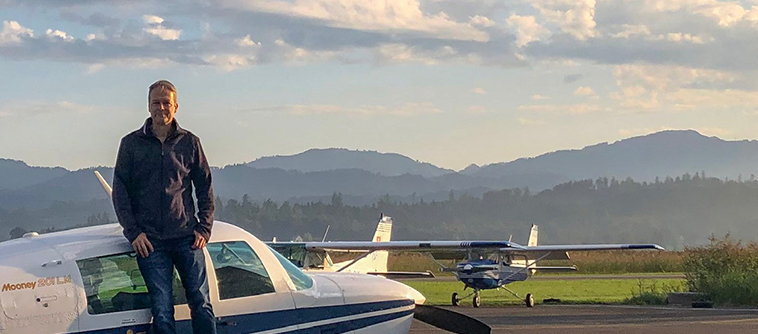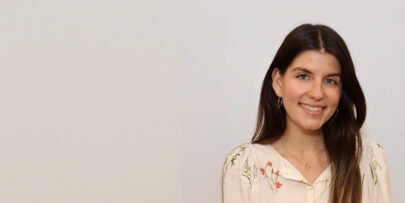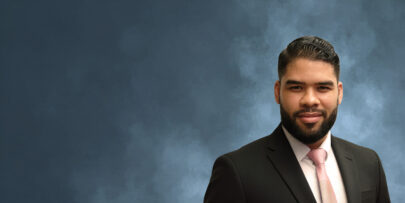
In a heartfelt address to IMD’s 2018 MBA graduates, Ton Büchner offered two key messages from his eventful and still ongoing corporate career: never be indifferent to the things you believe in; and never forget the value of family and friends, no matter how competitive you are in the professional arena.
Speaking 25 years after his own IMD graduation, those were lessons hard learned. At both Akzo Nobel, the Dutch paints and coatings giant he headed for five and a half years (2012 to 2017), and before that at Swiss engineering group Sulzer, Büchner was at the sharp end of external and internal battles requiring tough decisions at some personal cost.
“I have always stood up for the things I believed in, sometimes at some cost to myself”, says the genial and highly articulate 56-year-old Dutchman, since 2019 also a Swiss citizen.
Sulzer was his first employer after completing his MBA at IMD in 1993 and his career included a multiyear stay in China and several divisional president roles. When he became CEO, a position he held from early 2007 to late 2011, he was center stage after an oligarch bought a major stake through peculiar derivative structures and seemed set on radical change. Only after two years of dogged resistance from chair Ulf Berg and Büchner did relative calm prevail. A broader achievement was that, based on the Sulzer case, Switzerland changed its notification rules for shareholders, after which no such similar case of creeping control has happened.
At Akzo Nobel, at the time a company with around €15bn ($17bn) turnover and 47,000 employees, he had been recruited in 2011 to boost growth and raise earnings. After the team delivered a year of record profitability in 2016, the company became embroiled in a bitter battle for independence amid a €27bn bid from a bigger foreign rival and the involvement of an aggressive activist investor.
“I took a very strong stance,” says Büchner of his position at Akzo Nobel. “I was convinced that the plan we had drawn up together would generate more value for shareholders than the alternative proposal. And we were convinced it would be quicker.”
The importance of being steadfast
After two raised offers and three months of trench warfare, the challenger backed down, and the activist almost certainly ended up making more money over time. “Specialty chemicals was spun off, and the company further streamlined as planned,” says Büchner. “If not for us, I am not sure if Akzo Nobel would still exist as an independent company.”
Büchner attributes his steadfastness to his parents – both entrepreneurs. “They stood up, sometimes got knocked down, and then stood up again. But they always fought for what they believed in.”
When it comes to Büchner’s second lesson, never forgetting the importance of family and friends, that also covers his surprise decision in 2012 – just six months after joining Akzo Nobel – to take a two-month break and reconsider his position. While there is continued speculation about the reason, it is clear the challenges facing the group – including a massive pension fund deficit – were considerably deeper than he had been led to believe. Some of the speculation was undoubtedly also spurred by internal resistance and opposition to likely restructuring plans.
Büchner decided to return to his job and pushed ahead with rationalization to create a leaner, fitter company. “By early 2017, we reported more than 10 consecutive quarters of improved profitability. Employee engagement was high and we were publicly recognized for our pioneering efforts in sustainability, at a time when the word sustainability was nowhere near as established and ubiquitous as it is today,” he says.
Neither, the break, nor the transfer of the CEO job to an internal successor soon after repulsing the hostile bid, have impeded a continuing high profile corporate career. After leaving the Dutch group, Büchner devoted a year to himself and his wife. He learned to fly, indulged his passion for rock and mountain-climbing, and relocated back to Switzerland.
Leave enough time to think and reflect
A slot on the Novartis board had already been his since 2016. A few years later he became the chair of Swiss Prime Site‚ the country’s leading publicly quoted real estate group, and the seventh largest in Europe. He also chairs Burckhardt Compression, a “pearl” spun off from Sulzer. In addition, he advises a non-quoted Dutch industrial company held by private equity, teaches at a university and mentors executive committee members of publicly quoted companies.
The portfolio is quite enough, he says. In a third piece of wisdom‚ this one not transmitted to the 2018 IMD class, he stresses the importance for any top manager of leaving enough time to think and reflect.
“No matter how fierce your gatekeeper, as a CEO or other high level manager, nobody will protect your diary for you. You have to actively do it yourself. Over the years, I learned to firmly block time for strategic thinking, as well as for family and friends. That approach has really helped me over the years.”
And what of IMD? “For three and a half years prior to IMD, I’d been an engineer and project manager, based in Singapore and working across Asia. I could pretty much predict my future with bigger and more complex projects. But I wanted to broaden my skills, search for new challenges, and discover the more unknown,” he says. “I wanted to study in Europe, because that’s where I thought I’d probably end up working in the long run. But there were only two schools in Europe offering my preferred one-year MBAs.”
With its smaller classes, greater intensity, and more executives actually on campus, IMD felt right. “The course gave me the tools and insights to be a more well-rounded leader. On the personal side, the fact it’s very multicultural means you also get to know yourself much better. And the course led me to make some lifelong friends. I can go virtually anywhere in the world and pick up the phone. That global network enriched my life on many personal and professional levels.”



